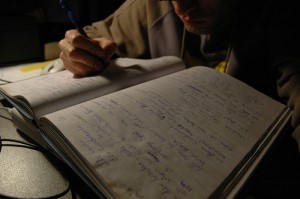This Will Be an Open Book Test
Posted on by Townsend MyersThere are strict rules in place for what jurors may or may not do to aid them in deliberation during criminal trials, and these rules vary from state to state. Asking questions of witnesses, taking notes, and talking with other jurors about evidence during lunch and breaks — all of these things are examples of prohibitions commonly set on juries in most states.
Michigan is breaking from the ranks by setting new guidelines which will allow jurors to take notes during trial, among other things, effective Sept. 1.
Will this new policy in Michigan help a jury to make the best decision toward justice? Or will note-taking stress the process and ultimately thwart justice?
What are some reasons why jurors would NOT be able to take notes? (Louisiana jurors, for instance, are restricted from note-taking during trials.) Here are some ideas:
- Jurors could become distracted from listening to proceedings, if they were focused on writing notes.
- A juror might take inaccurate notes that later, in his/her mind, become ‘fact’.
- A juror might be influenced by the notes of other jurors, rather than his/her independent recollection.
- Notes should never substitute for the recorded transcript or evidence, but likely would.
What are some reasons why note-taking might be a good idea? For that, let’s consider the brain’s ability to handle information.
What most people refer to as short term memory is termed working memory by those who study the brain. Working memory allows us to hold the information needed to do complex tasks such as reasoning, comprehension and learning. Research shows that the average person can only remember and distinguish four separate things at one time. Anything more and ‘item confusion’ becomes a problem. If these items are not continually reinforced then their memory begins to degrade. If another memory is similar to one of the memorized items, then what is called retrieval competition occurs. These are all things that can confuse memories we’ve tried to maintain and keep orderly.
There is no perfect criminal justice system…. The best are the ones that realize this.












